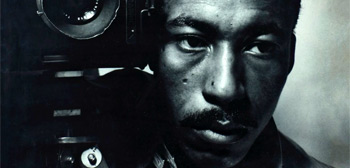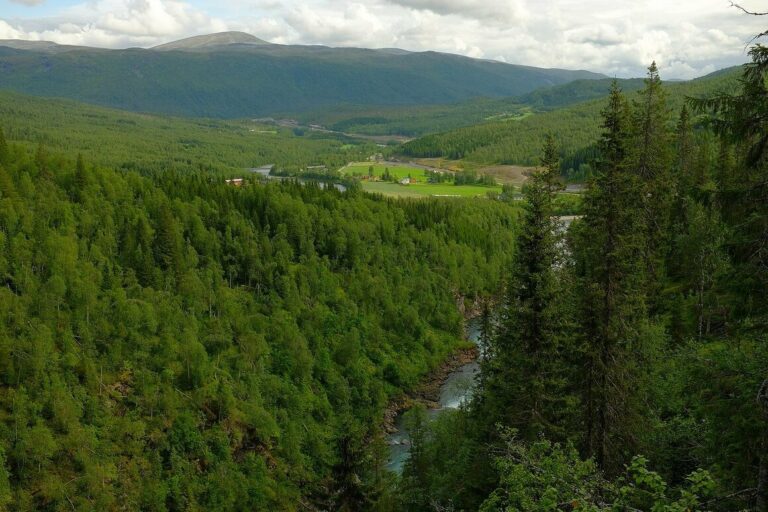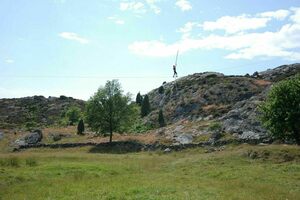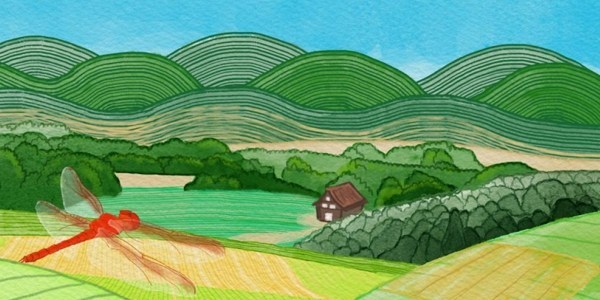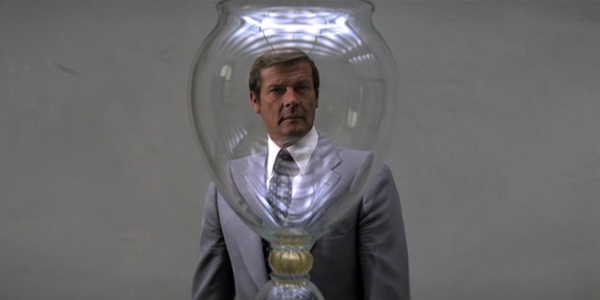AMUNDSEN: THE GREATEST EXPEDITION: Not So Great After All
As someone who has visited the Arctic Circle city of Tromsø, Norway not once, but twice (it’s beautiful and charming, and they run a great Midnight Sun Marathon), I am not unfamiliar with Roald Amundsen. A statue of him stands in the middle of Tromsø just outside their Polar Museum, which chronicles the history of polar exploration through stories and artifacts related to this “Gateway to the Arctic.” A Norwegian national hero, Amundsen embarked on many groundbreaking expeditions in both the far north and the far south of the world, including leading the first group of explorers to reach the South Pole and being one of the first verified to have reached the North Pole when he flew over it in an airship.
As someone fondly familiar with this part of the world, I was looking forward to Amundsen: The Greatest Expedition, a biopic of Amundsen and his escapades from Norwegian filmmaker Espen Sandberg (Kon-Tiki, Pirates of the Caribbean: Dead Men Tell No Tales). However, that it is only just now being released in the U.S. — two years after its largely panned Norwegian release — should have perhaps warned me of what to expect from the film. For in attempting to fit a lifetime of legendary adventure and personal upheaval into a mere two-hour film, Amundsen: The Greatest Expedition doesn’t manage to tell us that much about any of it.
North and South
The film begins showing us Roald Amundsen (Pål Sverre Hagen) in his twilight years as the plane he is in crash-lands somewhere in the Arctic. His brother and business manager, Leon (Christian Rubeck), with whom he has a tumultuous relationship, and his lover, Bess Magdis (Katherine Waterston), a married woman he met on an expedition in Alaska, meet each other by chance at Roald’s home, both drawn to it like a beacon of comfort as they await news of the missing Roald.
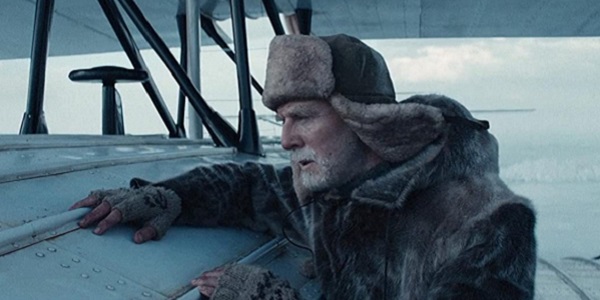
To pass the time, Leon relays the story of Roald’s life to Bess, beginning with their childhood in Southern Norway and their early explorations in the Northwest Passage. Leon quickly realizes that his brother has an innate passion for danger and adventure that he does not share, and segues from fellow explorer to business manager, helping Roald raise the necessary funds for his expeditions. However, this causes an emotional rift between the brothers that variously widens and narrows over the rest of their lives, as Leon grows exasperated with Roald’s recklessness while Roald judges Leon for living a more conventional life. That only one Amundsen is fated to go down in history is a recurring note of contention that nearly destroys their relationship.
After Roald learns that other explorers have claimed to be the first to reach the North Pole (despite those explorers having no evidence to prove it), he decides to abandon a planned trip north and instead head south in the hope of becoming the first to reach the South Pole. The quest is not without controversy: Roald lies about his intentions in order to borrow a ship, treats some of his fellow crew members with disdain and disrespect, and — perhaps most controversial of all — uses polar dogs not just as transportation, but as food, in order to survive. While he succeeds, beating British explorer Robert Falcon Scott to the South Pole by five weeks, he is treated like a villain by the British upon his return to civilization, who don’t appreciate what they view as ungentlemanly conduct. That Scott died on his return journey after reaching the South Pole only cements the two men’s legacies: Roald is viewed as a trickster, while Scott is lionized as a martyr.
Ups and Downs
The famed South Pole expedition would have provided more than enough fodder for an exciting tension-filled action film about Roald Amundsen. Yet Sandberg’s film only dwells on that part of Roald’s life for about half an hour. From there, Amundsen: The Greatest Expedition skips around throughout its protagonist’s life, including his attempts to reach the North Pole by drifting on ice, his informal adoption of two indigenous girls, his affair with married socialist Kiss Bennett (Ida Ursin-Holm), his various attempts to reach the North Pole by air, and his eventual success on an airship designed by Italian engineer Umberto Nobile. It is on a rescue mission to find Nobile, who has crashed in another one of his airships, that Roald Amundsen disappears, never to be seen again.
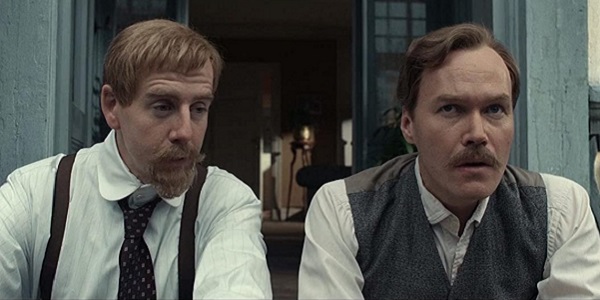
Not only is this just far too much information to pack into a feature-length film without it feeling incredibly overwhelming, Amundsen: The Greatest Expedition also chooses to present the majority of this information not through Roald himself, but through Bess and Leon’s conversations. As a result, the film feels as though it features more scenes of people talking about Roald Amundsen than it does the great man himself. Not only is this rather boring, but it makes it hard to get attached to our central character, and doesn’t provide the depth of perspective that one would like about such a unique and controversial figure in history.
By all accounts, Roald Amundsen was a prickly customer, and that’s putting it mildly. One of the best things about Amundsen: The Greatest Expedition is that it doesn’t shy away from portraying the less-than-savory sides of his personality that could be glossed over in favor of his heroic escapades. At one point towards the end of the film, Roald claims that his greatest wish is for Scott to not have died so that he’d just be remembered as someone who was beaten to the South Pole, instead of the tragic figure he became; it’s hard to think of a moment that better encapsulates the bitter competitiveness that drove him to achieve what he did. Nonetheless, I would have appreciated the film more if we had been able to spend more time with him, warts and all, than with his brother and his lover.
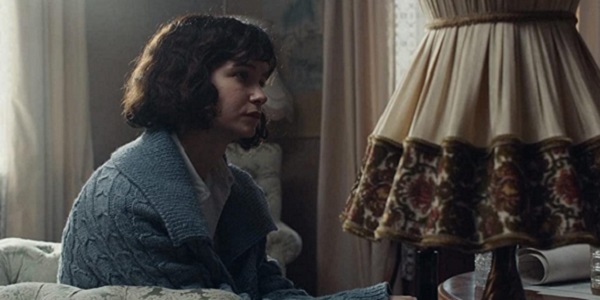
While Leon is an intriguing figure due to his complicated relationship with Roald, Bess feels like she was aggressively inserted into the story for two reasons: to give a major role to an English-speaking actor who might appeal to international audiences and to provide a counterpoint to the more negative interpretations of Roald’s actions. Yet her stubborn and devoted defense of Roald in her arguments with Leon means little when we barely see Bess share a scene with Roald over the course of the film; their love story means next to nothing when the scene in which they first meet is shoehorned into the final third of the film with hardly any context. We don’t ever see their relationship develop; we’re merely told it exists, and that’s just not enough. Waterston is a fine actress, but she is set adrift here with little assistance and no hope of rescue, not even from Roald himself.
Conclusion
The film is finely pieced together, from its performances to its production design to its cinematography, though some of the visual effects do have a decidedly low-budget feel for what is purportedly such an epic story. I just wish it had either narrowed its focus to a singular event in Roald Amundsen’s life or been at least twice as long. By doing neither, Amundsen: The Greatest Expedition (and which one is it—the South Pole one? His entire life? The film never really says) is ultimately unsatisfying, barely skimming the surface of the life of a man who contained multitudes.
What do you think? Are you familiar with the story of Roald Amundsen? Share your thoughts in the comments below.
Amundsen: The Greatest Expedition is available on VOD on April 2, 2021. You can find more international release dates here.
Watch Amundsen: The Greatest Expedition
Does content like this matter to you?
Become a Member and support film journalism. Unlock access to all of Film Inquiry`s great articles. Join a community of like-minded readers who are passionate about cinema – get access to our private members Network, give back to independent filmmakers, and more.
Join now!

